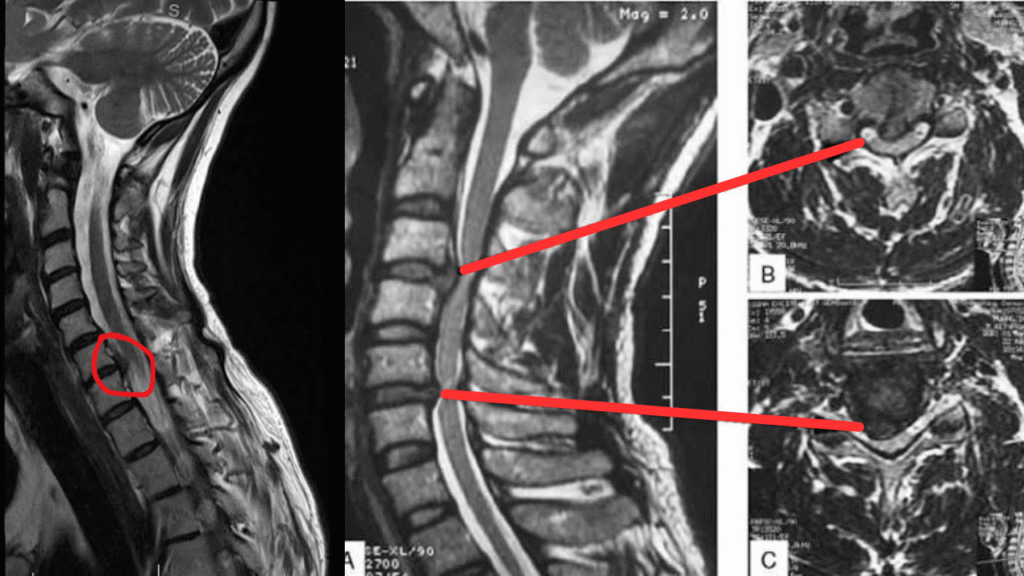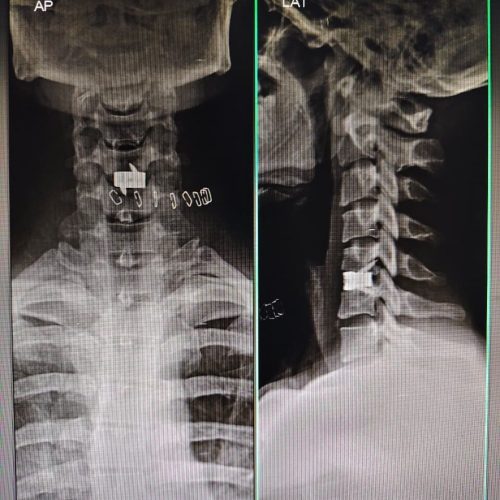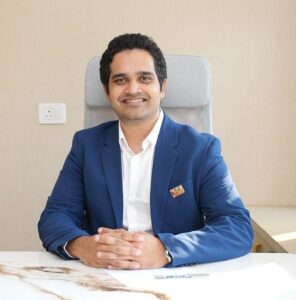By Dr. Saijyot Raut, Consultant Spine Surgeon at One Spine
13/11/2025 | 7 Min read
Neck pain that spreads to your arm, shoulder or causes tingling in your fingers may be more than a simple muscle strain it could indicate cervical disc herniation. Disc herniation can happen anywhere in the spine, starting from the cervical discs in the neck down to the Lower Back Herniation close to the L5 vertebra in the lower back. This condition is one of the most common causes of neck related nerve pain especially among working professionals who spend long hours on computers or mobile devices. Understanding the symptoms, causes and treatment options can help you make informed decisions about your spine health.

Between each bone (vertebra) in your spine lies a cushion like structure called an intervertebral disc which acts as a shock absorber. When the soft inner gel of the cervical disc pushes through its outer layer, it can irritate nearby nerves this is known as a cervical disc herniation or slipped disc in the neck.
This pressure on the spinal nerves can lead to pain, numbness or weakness that travels from your neck down to your shoulders, arms or even fingers.
Symptoms vary depending on which disc or nerve root is affected, but common signs include:
If these symptoms persist for more than a few days or interfere with your daily activities, it’s important to consult a spine specialist.
A herniated disc in the neck can occur for several reasons often related to wear and tear or injury:
A herniated disc in the neck can occur for several reasons often related to wear and tear or injury:
A spine specialist will begin with a detailed physical and neurological examination to assess your symptoms and reflexes. Diagnostic imaging helps confirm the condition and its severity:
Accurate diagnosis ensures the right treatment plan is created for long term recovery.
Neck pain especially from a cervical disc herniation can significantly affect daily life. With advancements in medical care, patients now have various effective treatment options for cervical disc herniation, including non surgical therapies and minimally invasive procedures. For those experiencing persistent neck discomfort, specialised neck pain treatment in Mumbai may provide the right approach to relief and recovery.
In most cases cervical disc herniation can be managed without surgery. The goal of conservative treatment is to relieve pain, reduce inflammation and restore mobility.
If conservative treatment fails after several weeks or if there is significant nerve compression, surgery may be necessary.
Common surgical options include:
This procedure helps relieve neck and arm pain, restore nerve function, and prevent further spinal degeneration.

Recovery depends on the severity of the condition and the treatment method used.
Following your doctor’s rehabilitation plan, maintaining good posture, and doing regular spine exercises play a crucial role in preventing recurrence.
If you experience persistent neck pain, arm weakness, or numbness that doesn’t improve, don’t delay evaluation. Early treatment can prevent long term nerve damage and improve your quality of life.
If you’re in Mumbai and looking for expert guidance, consulting an experienced spine specialist can help determine the best course of treatment tailored to your condition.
Verified by:

M.S ( Ortho), F MISS, F CV
Dr.Saijyot Raut is a consultant spine surgeon with 10+ years of expertise in minimally invasive spine surgery, scoliosis and complex spinal disorders. He is part of One Spine team which has branches all over Mumbai and practises across leading hospitals in Mumbai